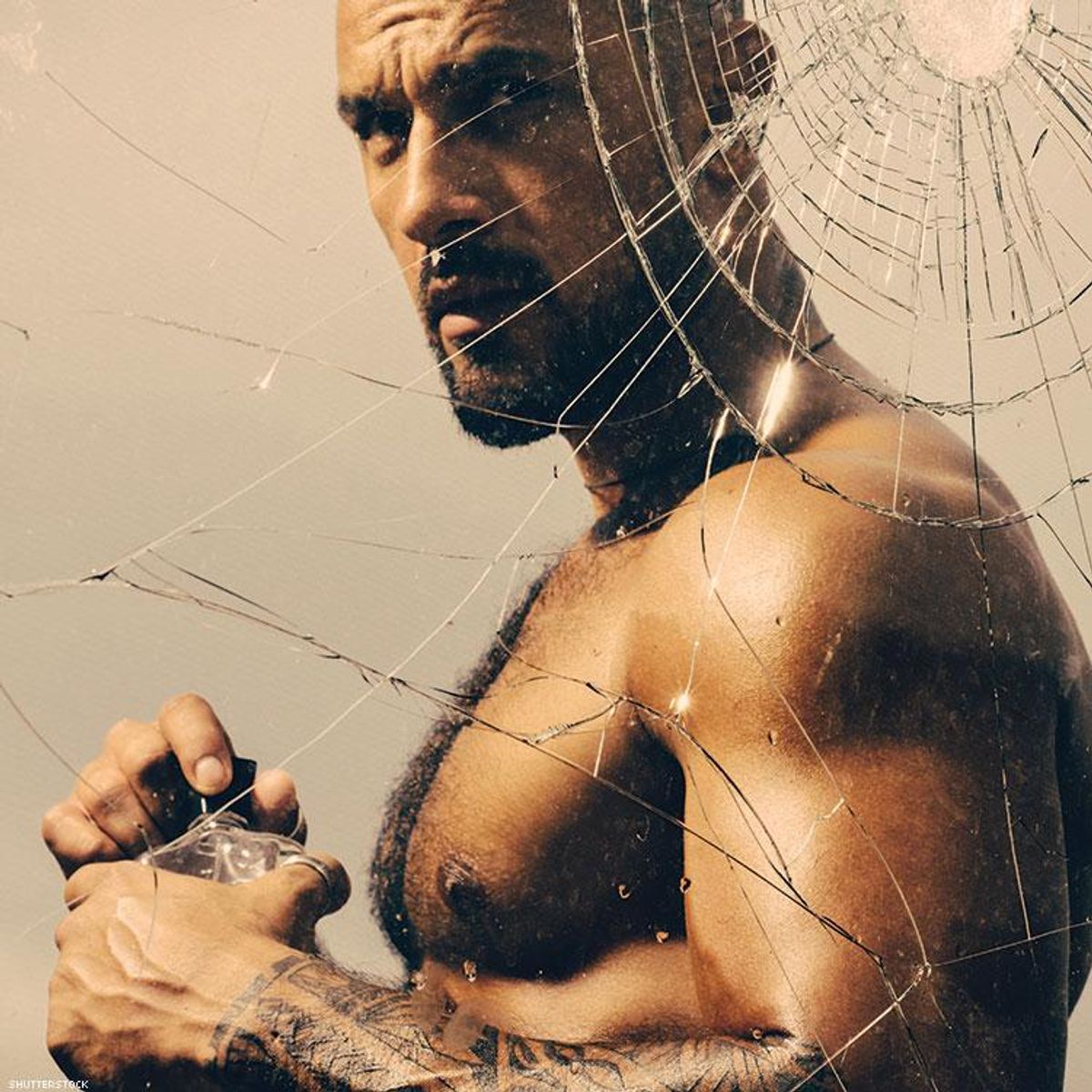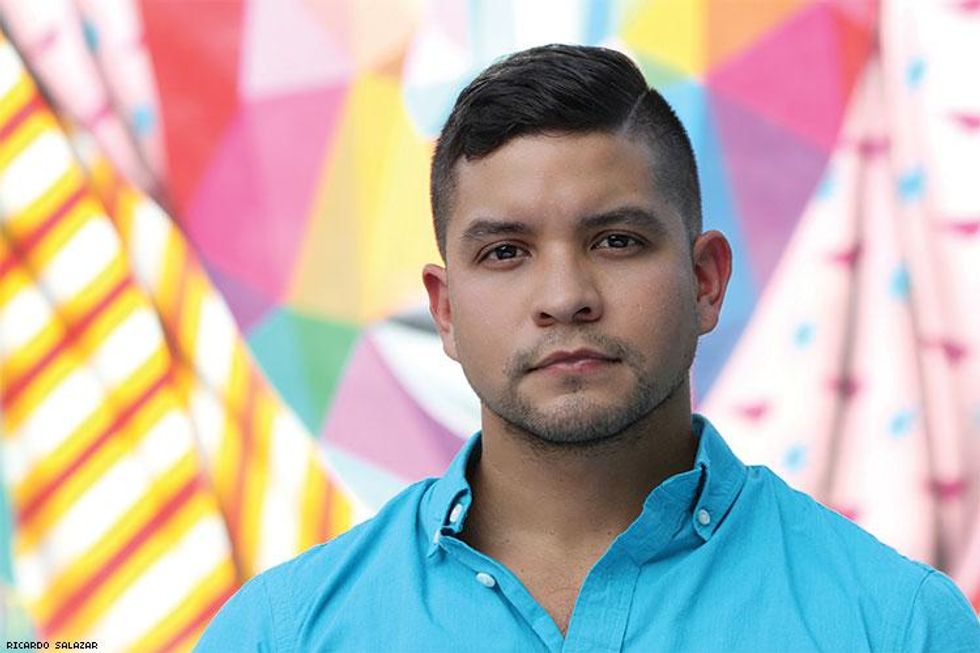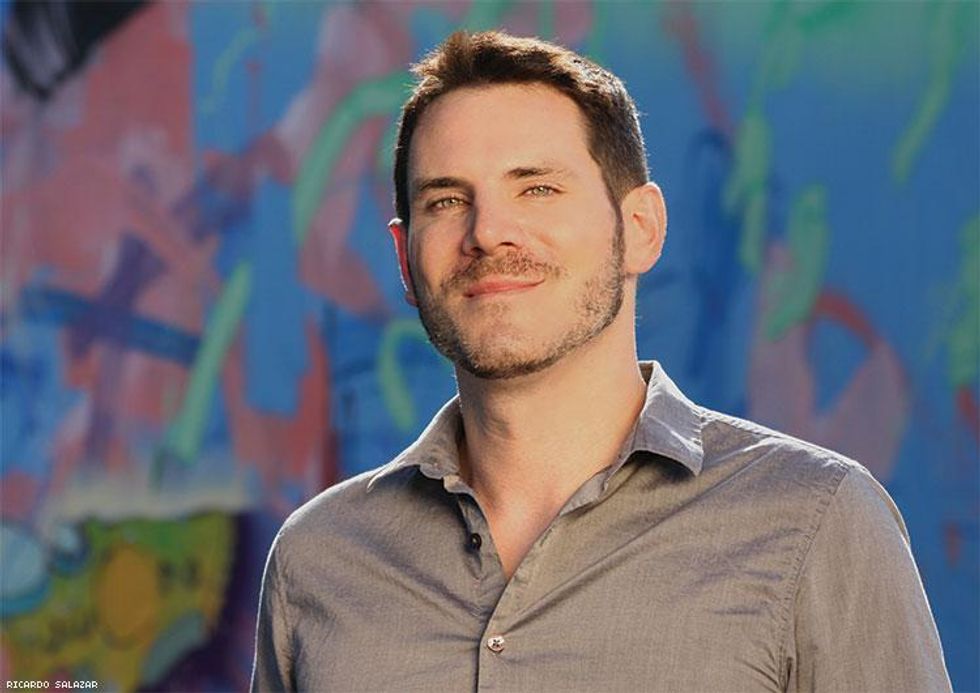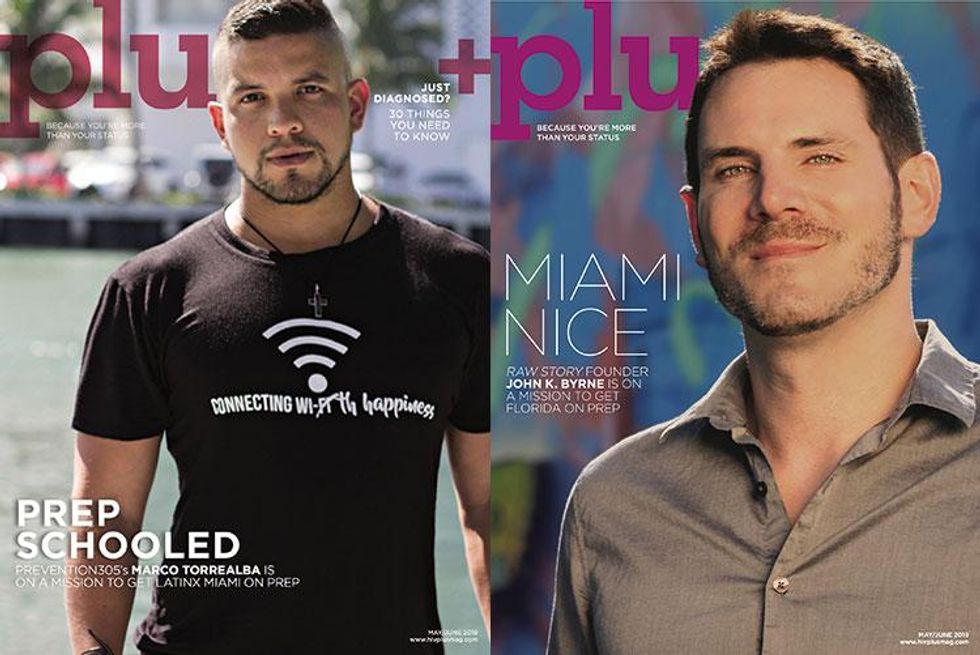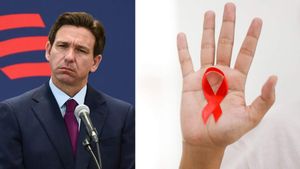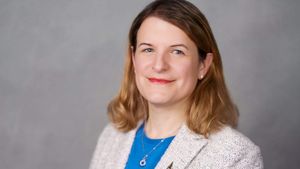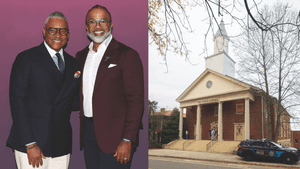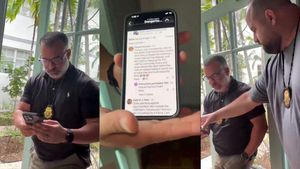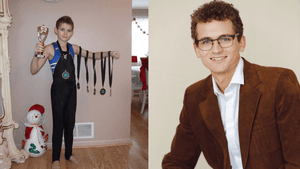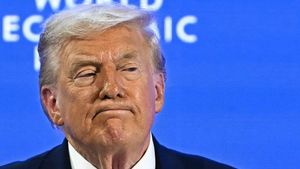When the United Nations Commission on Human Rights declared last year that Venezuela was in “a downward spiral with no end in sight,” Marco Torrealba knew exactly what that meant. A former corporate journalist, Torrealba fled Venezuela in 2015 leaving behind his family, friends, and career.
“I grew up in a very poor area in Caracas called La Vega,” Torrealba recalls. “It’s what some people here call the ghetto or favela.” The Brazilian Portuguese word for slum accurately described his humble beginnings, but Torrealba says, “Because my parents pushed me, I made it to college.”
Torrealba isn’t the only Venezuelan college grad making moves into the U.S. According to an analysis by Pew Trust’s Stateline of American Community Survey data from the University of Minnesota, “Venezuelans are the most educated Latin American group in the United States—more than half of adults have college degrees, compared with fewer than 10 percent for those from Mexico and Central American countries.”
Florida is one of the five states with the most Venezuelan immigrants (there are about 200,000 living in the state right now). The “Bolivarian diaspora” is the largest refugee crisis in the Americas on record, with four million Venezuelans (or 10 percent of the country’s population) fleeing their native country during the presidency of Nicolás Maduro (and that of his predecessor Hugo Chávez). It’s a crisis comparable to those of Syrian refugees and Cuban exiles (many of whom also fled to Florida), and it’s not over. In 2016, nearly 60 percent of those remaining in Venezuela said they still hoped to leave.

Torrealba says he left when his life was in danger, the reason many others fled. He is chagrined to talk about it, for fear of what could happen to his family still back home.
But he admits, that if someone “disagrees with the government, you put yourself, work, life, and even your family at risk.”
The fact that he’s a gay man made life in Venezuela even more difficult. The country offers no legal protections for LGBTQ people. So, Torrealba says, he came to the U.S. and “started from zero in this country.”
Of course, that meant his career had to be rebooted too.
“You have to adapt yourself to whatever is the work that you have to do,” he admits. “Work really dignifies people. The American culture is about hard work and achieving your goals. That is something you learn here.”
Torrealba says after nearly two years of seeking “something better,” his foray into HIV prevention came after “meeting amazing people who work in the field.”
His journey eventually led him to Prevention305, an organization aiming to improve PrEP education and access in Miami-Dade County. “Prevention305 allowed me to realize kind of part of my American dream,” Torrealba says. “A dream that was not in my agenda, but it is happening now. How many people have the opportunity to bring an organization to a point where it has an impact in the community and is helping others in need?”

Getting the organization to that point has been the fruition of work by Prevention305’s founder John K. Byrne. Though both men are gay, Byrne’s childhood couldn’t have been more different from Torrealba’s.
Raised in a Boston suburb, by a doctor father and a mother who was a circuit judge on the Massachusetts District Court, Byrne attended the affluent Concord Academy, one of the top 15 prep schools in the U.S. ranked by SAT scores (other famous grads include Caroline Kennedy and Queen Noor of Jordan). Byrne went to college at Oberlin, starting a journalism career that would lead to The Boston Globe and later to founding Raw Story, a progressive news site keen on political coverage. He was only 24.
Today, Byrne is the CEO and co-owner of Raw Story Media, which owns and publishes RawStory.com, AlterNet.org, and TheNewCivilRightsMovement.com. But in 2015, while taking PrEP, the HIV prevention treatment strategy, Byrne had a false positive result, which he later wrote about in The Atlantic. The story was a viral hit, causing a lot of debate among gay and bi men over PrEP use. If Byrne had indeed been positive, it would have been an extremely rare occurrence (so far only a handful of people have acquired HIV while properly practicing PrEP).
Once Byrne learned he was still HIV-negative, the media mogul threw himself into educating others about HIV and PrEP, inspired by activist Peter Staley’s campaign against crystal meth. “[Staley] paid for the ads and the phone lists himself,” explains Byrne. “And he was like, ‘If our government isn’t doing anything, if people aren’t doing anything, just do it. You have the money. Just do it. Do it yourself. Don’t wait for somebody to do it.’ And I think that was inspiring because I didn’t start the nonprofit until two years after I was doing the work.”
Byrne started using his own money and creating prevention brochures and educational posters in English and Spanish, partnering with local organizations but also taking the posters out to nightclubs and bars. That’s when the nonprofit really started to emerge, but the pivital moment came when he realized Prevention305 would need more—more money and more personnel—than he could provide by himself. He officially founded Prevention305 and began applying for grants.
The organization’s first big get came from Gilead, Byrne recalls, “and AIDS United also took a chance on us as a new agency, which I was surprised and impressed by, and then from that, we had the amount of the budget to start the program, which we did early in 2018.”
The first step was hiring a program director, and Byrne knew he needed a Spanish speaker. He found his match in the Venezuelan immigrant Torrealba, but it was a comical and costly error that led them to each other.
“I knew my Spanish was terrible, so I would have my friend who spoke Spanish help me translate,” Byrne recalls of working on one of Prevention305’s early public education campaigns. The ad featured a man holding a Truvada pill (the first medication approved as PrEP) and the words, “Swallow This.” Byrne’s earlier translated posters had been fine, but this one, with the literal Spanish translation of tragate esto just didn’t work. “I brought it to a health department work group and everyone smiles, ‘Oh, look at this white guy, doing this nice little thing.’” But after some chuckles, someone came to Byrne and said, “You know what this means, right?”
Turns out in Google translate “tragate esto” is indeed “swallow this.” But on the streets the translation means something a little more risque: “suck my dick,” which, as Byrnes says, was “not what I was trying to come up with.” From that moment, he knew he had to hire someone directly from the immigrant community.
According to the United Nations Development Program, Miami has the highest percentage of foreign-born residents (59 percent) of any city in America. Most are from Latin America. Spanish expert Gerald Erichsen reports that Miami also “has the largest Spanish-speaking population in the Western Hemisphere, outside Latin America.”
“It’s a very, very unique environment,” says Byrne, and so he went in search of Marco Torrealba, who had been waiting years for just this kind of opportunity.
“When I started, it was mind-blowing,” Torrealba recalls. “It changed my mindset about public health and the perspective of how we talk or related to HIV in Latin America. I learned that I had lot of stigma, ignorance, and fear. The HIV prevention work touches your heart and changed all of that. It has become a passion to transfer knowledge about HIV prevention to my Latino community, see how others receive care or treatment, but also how that has an impact in their emotions, minds, and their lives.”
The first thing Torrealba did as program director was to shake up all the organizational thinking about reaching Latinx in Miami. In fact, in his job interview, Torrealba recalls telling Byrne, “‘This is totally wrong. This is what we have to change.’ I said to him, ‘Immigrant, Latinx, we just don’t speak different, we just don’t look different, we also feel different. We have different perceptions about everything.’ A Venezuelan will see things different than someone from Colombia. Someone who is from Peru will see sexuality differently than someone who is from the Caribbean. So technically, what we did is try to embrace all these cultures and started to talk even in Spanish in our communications. But I had no idea, no clue about how to do it.”
There are the already-developed outreach programs via dating and hookup apps like Grindr, but Torrealba convinced Byrne that Instagram is the new Grindr—and a good way to reach gay and bisexual men.
“Everyone is on their phones,” says Torrealba. “No one wants to have a flyer in their pocket. Everyone wants to be private about whether they are on PrEP or on treatment as prevention, or condoms, or even for sex. So we developed this website where we put this form and we collect information. We refer clients from the dating apps to the website, or from social media to the website. We forgo those hashtags like PrEP, HIV prevention… we started to use hashtags that are related to Cubanos in Miami, Venezuelans, Colombianos in Miami, everything in Spanish mostly.”
“People read the information there [and] within 24 to 48 hours we have an appointment set up for them, with dates, with times, with the documents they have to bring in order to get PrEP in Miami,” Torrealba continues. “Sometimes we get people from Broward [County, Florida] and we help those people. We are getting people from New York and New Jersey. For those people, we send a list of different places close to their zip codes where they can go and get PrEP. We are getting people now from Panama asking for PrEP, people from Peru asking for PrEP, and that is because of social media. People are finding us through Instagram, and also through different international media that has been interviewing us.”

Byrne adds that Torrealba’s program work has really been what’s made Prevention305 successful. “My main focus is sort of like, let me tell you the numbers I want and let me write the grants,” the group’s founder says. “Frankly, my white privilege that I can write grants in English is really good for raising money. That’s another problem in Miami, honestly. A lot of these grants only accept applications in English and so even if you do speak English, as a native Spanish speaker, you don’t necessarily have the language capabilities of someone who went to an elite school. And you’re competing for the same money with people from Boston and New York and San Francisco.”
Torrealba agrees, and he knows the immigrant experience that potential clients continue to face. “When you migrate, most of the things in life get another perspective,” he shares. “When you are alone and some things are uncertain to you, or you just don’t understand, you learn to keep it cool. To be still.”
Since Prevention305 has no fixed office, Torrealba and Byrne have launched a clinic inside a mobile PrEP van that can move neighborhoods each day.
“There’s so many problems with the centers that we were trying to refer people to,” explains Byrne. Initially people they meet on apps like Grindr go to Prevention305’s website and register their interest in PrEP. People can give information about their availability and then navigators reach out to them to make an appointment. But it wasn’t always easy.
“We were having all these problems with places where we were referring people until we basically decided, well, we just have to set up our own clinic,” Byrne says. Originally, the clinic was going to be in a gay hotel that had volunteered to renovate space for the group, but the city nixed the plans over zoning issues. The commissioners ultimately approved a project that Prevention305 is doing in partnership with a local cancer center and the University of Miami Medical School. In some areas, the van draws more folks seeking cancer screenings, but in “Miami Beach, it’s mainly PrEP,” Byrne says.
UM supplies the medical staff; Prevention305 supplies clients. Torrealba and his crew meet clients online and then set up an appointment at the van where they receive rapid HIV testing and then can get a prescription for PrEP, typically the same day. The van has been operating for six months now, traveling between neighborhoods like Miami Beach, Little Haiti, and Overtown.
“We supplied 90 percent of the PrEP clients,” says Byrne. “I had a dinner with a high-level Gilead person and he said that it is the first successful HIV prevention van in the country.”
One reason, he argues, is that other programs expect walk-ins. Torrealba and his peer navigators schedule five to six people a day when the van is in a neighborhood instead of waiting for people to just show up.
“It’s basically three or four days a week in different locations,” Byrne says. Prevention305 is officially a referral agency that works with more than 10 agencies. Generally, the minute someone sees their message or meets a navigator on an app or social media site and then goes to fill out the request form, it takes 24 hours to get them in for an appointment. The peer navigators educate clients in both English and Spanish, and someone is present at the client’s first appointment for moral support and to help ease any language barriers.
“We have a small, smart, multicultural team that includes a Black-African-American transgender woman, a Black-African-American-Latinx lady, two Latino immigrants, and we are interviewing more Latinx [people],” Torrealba says. The immigrant teammates are critical to their clientele. “When you are an immigrant, you are vulnerable. You are starting every aspect almost from zero. Your brain doesn’t work the same. You have left a lot behind you. You have to unlearn and start a new learning process. Navigating a health system that it is in English could be difficult and intimidating. You don’t want a big bill coming towards you.”
He says that while many agencies in Miami now include Spanish and Creole speakers as part of their staff, speaking to Latinx immigrants takes special care. “It’s time to change the vocabulary,” adds Torrealba. “It’s time to change the speech, what we are putting out there about PrEP. Our strategy is to normalize the conversation about PrEP, understanding it as an HIV prevention option for everyone.” He says “joy” is part of the spiel.
In addition to the peer navigators, one of whom is well-known trans performer Latavia Goldson (a.k.a. Fantasia Royale), Torrealba works with numerous Latinx influencers. Among them are E! TV host Daniela Kosan (a former Miss Venezuela International), Venezuelan broadcast journalist Sergio Novelli, celebrity trainer Juan Cortes, Emmy winner and Instagram influencer Antonio Torrealba (no relation to Marco), and theater producer-director Enrique Salas.
Prevention305 takes a different approach to PrEP. It’s something they talk about with families and straight people. With the media, Torrealba says, “we talk about PrEP like we are talking about condoms, like we are talking about something normal. Of course we talk about the high number of HIV [transmissions] in Miami, but we are also talking about solutions.”
Though Byrne originally created their prevention plan around dating apps, Torrelba was the first to explain that “immigrants look to people’s Instagram profile to validate the organization,” Byrne says. “He was like, ‘We need to have a good Instagram profile.’ And then what he would do is he would post something and then hashtag PrEP and then hashtag a popular event like Winter Party or something like that. He actually found people coming in from the hashtags and then messaging our account looking for PrEP, which was crazy to me. Because it’s not even like they were following us. They were coming in through a hashtag.”
Byrne is endlessly happy with the agency’s success so far, but he’s not in it for the fame or glory.
“For me, I think it’s really about giving people the options that I have. I think people are like, ‘Oh, well, why isn’t everyone on PrEP?’ and ‘You need to get these many people on PrEP and you need to do it here,’” Byrne says. “But for me, it’s more important that people just know they have access to it for free.”
The media CEO says that Prevention305 is about bridging gaps. What he’s trying to do “is to make a difference in a community where I am not representative of the community.” Eventually, the end game is to eliminate himself. After all, he says, “The director of a nonprofit should be from the community that’s being served.”
Still, the structural impediments in raising money as a nonwhite person without an elite education are challenging. Byrne has done fundraisers for Democratic House candidates, is affluent and well connected, and has access to those communities in terms of fundraising. He’s aware of the privilege that he has and is trying hard to mitigate that for his organization.
